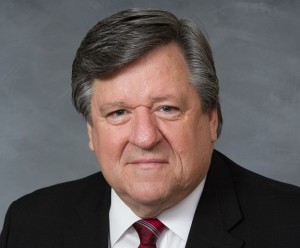 When long-time legislator and lawyer Martin Nesbitt died last week at age 67, he was already on my mind for a column. The news of his stomach cancer, followed quickly by his death, shocked those who remembered his powerful presence as a representative and then state senator.
When long-time legislator and lawyer Martin Nesbitt died last week at age 67, he was already on my mind for a column. The news of his stomach cancer, followed quickly by his death, shocked those who remembered his powerful presence as a representative and then state senator.
Nesbitt was one of North Carolina’s all-time great legislative leaders. For that I admired him greatly. But we sometimes ran into difficulties back in the 1990s when I was representing the university system, and he was trying to take into account the needs of the entire state in his role as chair of the House Appropriations Committee. He championed public schools, mental health, and the environment. While he generally supported higher education, he would sometimes look to the university’s funding streams for resources to support other priorities.
He and I also had political differences. We had radically different ideas about the tactics the Democratic Party and its advocates should use to win elections. I thought that Democrats could not win elections unless they got significant support, indeed a big share of votes, from moderates.
“Get too liberal,” I said, “and you lose a critical group of voters the Democrats need to win.”
I thought that Democrats must not be viewed as a captive of the so-called special interest groups, including labor, civil rights, or environmental groups, even though they usually give important support to Democratic candidates. Therefore, I insisted, Democrats had to be aggressive in courting moderate and pro-business voters.
Nesbitt, however, was what former House speaker Joe Hackney calls “a mountain populist then, a mountain populist to the very end.”
Another former House speaker, Dan Blue, agreed, telling the News & Observer that Nesbitt “had a sense of mountain populism that ran through him, and he sensed that his major charge was to look out for the average everyday person.”
True to his populist roots, Nesbitt insisted that unless Democrats champion the little guys, working men and women, teachers, and others who have to struggle to make their way, then the Democrats cannot expect the enthusiastic support of such people when election time comes around. Without their passionate support, Democrats will not win many elections.
“If we don’t treat them right, why should they help us?” he would ask.
It was hard to win an argument with Nesbitt. He was smart, usually well-armed with relevant facts, tenacious and possessed with a kind of cheerful crankiness that could disarm and frustrate those who differed with him.
His friend, admirer, and legislative colleague, former Representative Jack Hunt, also served in the House with Nesbitt’s mother, Mary Cordell Nesbitt. Martin Nesbitt was appointed to fill his mother’s seat when she died in 1979. Hunt told me, “He got some of that cantankerousness from his mother and also his interest in the little people. She was tough and hard-nosed. She was pretty hard, but she did a great job. Martin was more of a diplomat than his mother. I never remember him speaking harshly or insulting anyone in debate on the floor. He was just as tough, but had a softer touch.”
Hunt praised Nesbitt’s values and mastery of the legislative process. “He learned a lot of that from Liston,” Hunt said, referring to longtime House Speaker Liston Ramsey, a dominant figure in North Carolina politics during the 1980s.
Nesbitt took what he learned from his mother, Liston Ramsey, Jack Hunt, and others and fashioned himself into one of North Carolina’s most effective legislators, one whose untimely death leaves an empty place that will be hard to fill. Without him to remind Democrats of their populist roots and responsibilities, it will be even harder for them to construct winning efforts in this year’s and future elections.

